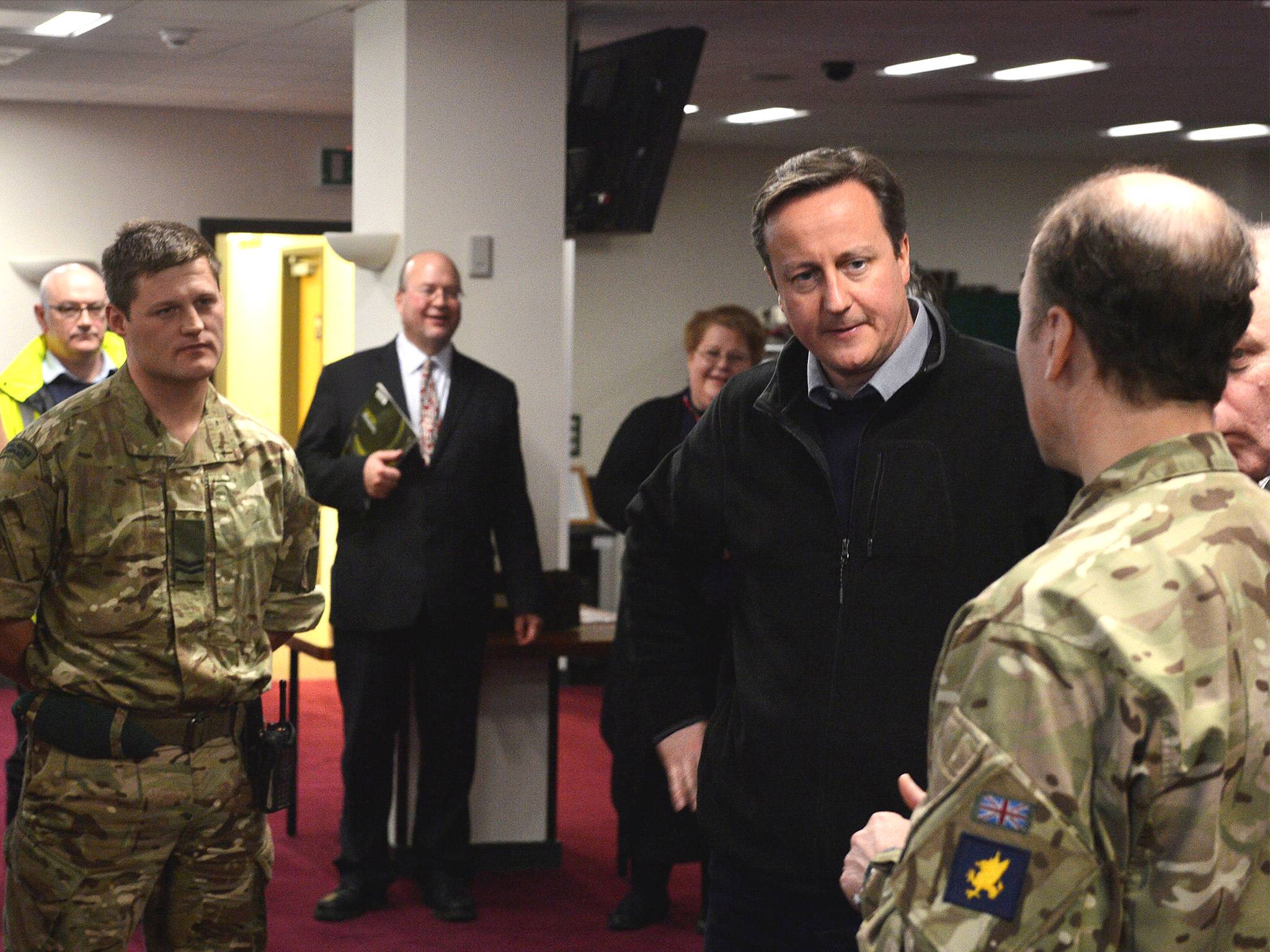Flooded Britain: The police, the military and the Government – exactly who is in charge of what?
'Local resilience forums' are being formed around the country to tackle the floods and manage the emergency response by bringing together local parties

As Britain steps up its flood defence efforts, with the police and the military mobilising their resources to help the Government take control of the disaster, it may be difficult to tell who is in charge of what in such a complex and sprawling operation - and who should be blamed for any failings.
Plenty of work is being done at a local level. In Surrey, where the fire service has evacuated 150 homes and expects the number to rise in the coming days, the Environment Agency has teamed up with the county council, fire and police services and the NHS to evacuate endangered residents and protect houses and infrastructure from the floods. The police have deployed 74 4x4 vehicles, and the council has provided an additional 12,000 sandbags.
This coalition is one of many "local resilience forums" forming around the country to tackle the floods and manage the emergency response by bringing together local parties. These forums sit at the bottom of a complex and lengthy flood response chain that is topped by the "floodmaster general", David Cameron - although they report to the Communities Department, which is headed by Eric Pickles, rather than the Prime Minister.
Second in the flood response chain of command is the emergency Civil Contingency Meeting - known as the Cobra committee - which includes Mr Pickles, Environment Agency head Paul Leinster, the Met Office and the Ministry of Defence.
Normally chaired by Environment Secretary Owen Paterson, Mr Cameron has been heading the committee recently as he seeks to take control of the flooding.
During times of emergency, Cobra guides the country's action and sits directly above the Department for Environment, Food and Rural Affairs (Defra), in a chain of command in which Defra is normally the top dog - with Mr Cameron concentrating on other matters and Cobra meetings extremely few and far between. The Environment Agency is responsible for the day-to-day handling of the floods and comes next in the hierarchy, with chairman Lord Smith and chief executive Mr Leinster reporting to Mr Paterson.
The agency helps prepare for floods on Britain’s main rivers – for example by sending teams out to clear water channels ahead of storms – and performs longer-term functions, such as long-term weather forecasts, flood mapping and modelling and having a statutory consultancy role in new planning developments.
The agency works closely with local authorities, who are responsible for minor water courses as well as surface water and overflowing drains. Meanwhile, the Internal Drainage Board - a partnership between land-owners and local authorities - manages flood risk in farming areas.
Finally, the rank with the best name is the Gold Command. These are local response units, usually led by the police, that involve other emergency services, the Environment Agency and local authorities. They provide strategic advice to Cobra and the Environment Agency on how best to allocate resources, such as the agency's temporary flood defences.
Away from the chain of command, other parties and residents also do their bit.
The Royal Mail said that it is holding mail for people who are exiled from their homes and will provide a free redirection service. Meanwhile Khalsa Aid - a charity that usually helps in the aftermath of foreign disasters - has come to the aid of Somerset flood victims providing bottled water, food, clothing and antiseptic fluid.
The Red Cross's 7.5-ton Unimog all-terrain vehicle is also part of the effort to send supplies to Somerset.
The logistics have become more complicated after the Ministry of Defence dispatched 100 Royal Regiment of Fusiliers personnel to assist with flood relief efforts in Wraysbury, Berkshire, and placed more than 1,650 troops across the South "at a high readiness ... to receive taskings".
Their tasks include manual jobs such as filling and moving sandbags, evacuating residents, repairing flood defences using military bulldozers and excavators and protecting electricity sub-stations.
Flooding in England
Show all 20Subscribe to Independent Premium to bookmark this article
Want to bookmark your favourite articles and stories to read or reference later? Start your Independent Premium subscription today.

Join our commenting forum
Join thought-provoking conversations, follow other Independent readers and see their replies